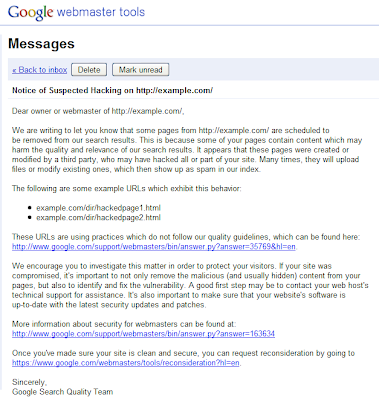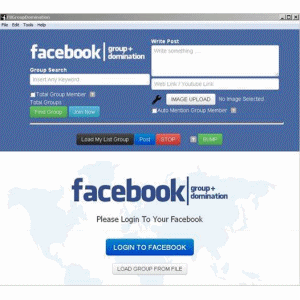Webmaster Level: All
We certainly hope you never have to use our new Help for hacked sites informational series. It's a dozen articles and over an hour of videos dedicated to helping webmasters in the unfortunate event that their site is compromised.
Overview: How and why sites are hacked
If you have further interest in why cybercriminals hack sites for spammy purposes, see Tiffany Oberoi’s explanation in Step 5: Assess the damage (hacked with spam).
Tiffany Oberoi, a Webspam engineer, shares more information about sites hacked with spam
And if you’re curious about malware, Lucas Ballard from our Safe Browsing team, explains more about the topic in Step 5: Assess the damage (hacked with malware).
Lucas Ballard, a Safe Browsing engineer, and I pretend to have a totally natural conversation about malware
While we attempt to outline the necessary steps in recovery, each task remains fairly difficult for site owners unless they have advanced knowledge of system administrator commands and experience with source code. For helping fellow webmasters through the difficult recovery time, we'd like to thank the steady members in Webmaster Forum. Specifically, in the subforum Malware and hacked sites, we'd be remiss not to mention the amazing contributions of Redleg and Denis Sinegubko.
How to avoid ever needing Help for hacked sites
Just as you focus on making a site that's good for users and search-engine friendly, keeping your site secure -- for you and your visitors -- is also paramount. When site owners fail to keep their site secure, hackers may exploit the vulnerability. If a hacker exploits a vulnerability, then you might need Help for hacked sites. So, to potentially avoid this scenario:
We certainly hope you never have to use our new Help for hacked sites informational series. It's a dozen articles and over an hour of videos dedicated to helping webmasters in the unfortunate event that their site is compromised.
Overview: How and why sites are hacked
If you have further interest in why cybercriminals hack sites for spammy purposes, see Tiffany Oberoi’s explanation in Step 5: Assess the damage (hacked with spam).
Tiffany Oberoi, a Webspam engineer, shares more information about sites hacked with spam
And if you’re curious about malware, Lucas Ballard from our Safe Browsing team, explains more about the topic in Step 5: Assess the damage (hacked with malware).
Lucas Ballard, a Safe Browsing engineer, and I pretend to have a totally natural conversation about malware
While we attempt to outline the necessary steps in recovery, each task remains fairly difficult for site owners unless they have advanced knowledge of system administrator commands and experience with source code. For helping fellow webmasters through the difficult recovery time, we'd like to thank the steady members in Webmaster Forum. Specifically, in the subforum Malware and hacked sites, we'd be remiss not to mention the amazing contributions of Redleg and Denis Sinegubko.
How to avoid ever needing Help for hacked sites
Just as you focus on making a site that's good for users and search-engine friendly, keeping your site secure -- for you and your visitors -- is also paramount. When site owners fail to keep their site secure, hackers may exploit the vulnerability. If a hacker exploits a vulnerability, then you might need Help for hacked sites. So, to potentially avoid this scenario:
- Be vigilant about keeping software updated
- Understand the security practices of all applications, plugins, third-party software, etc., before you install them on your server. A security vulnerability in one software application can affect the safety of your entire site
- Remove unnecessary or unused software
- Enforce creation of strong passwords
- Keep all devices used to log in to your servers secure (updated operating system and browser)
- Make regular, automated backups of your site










